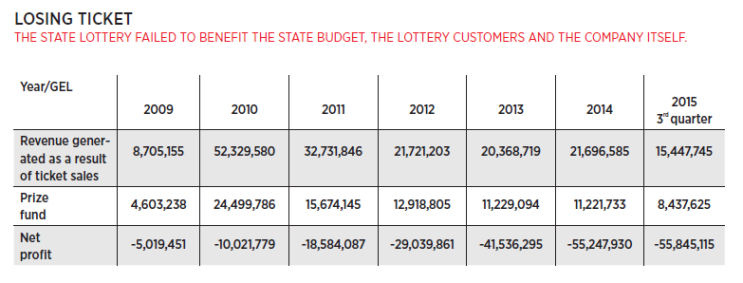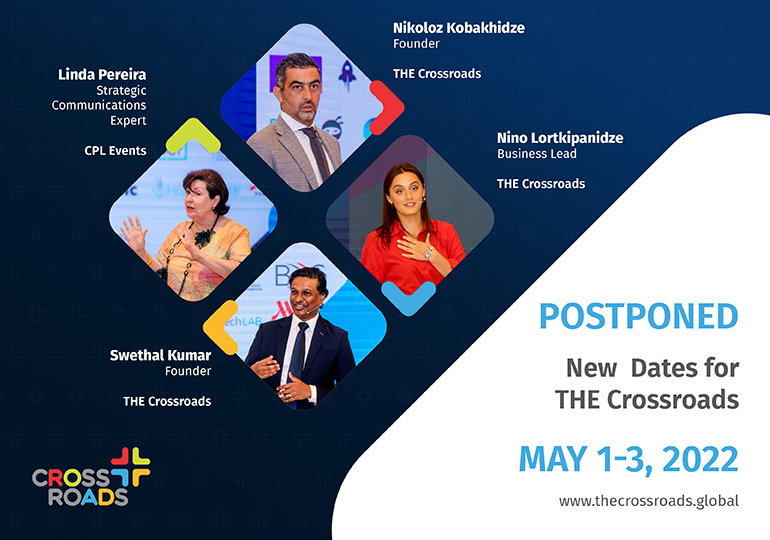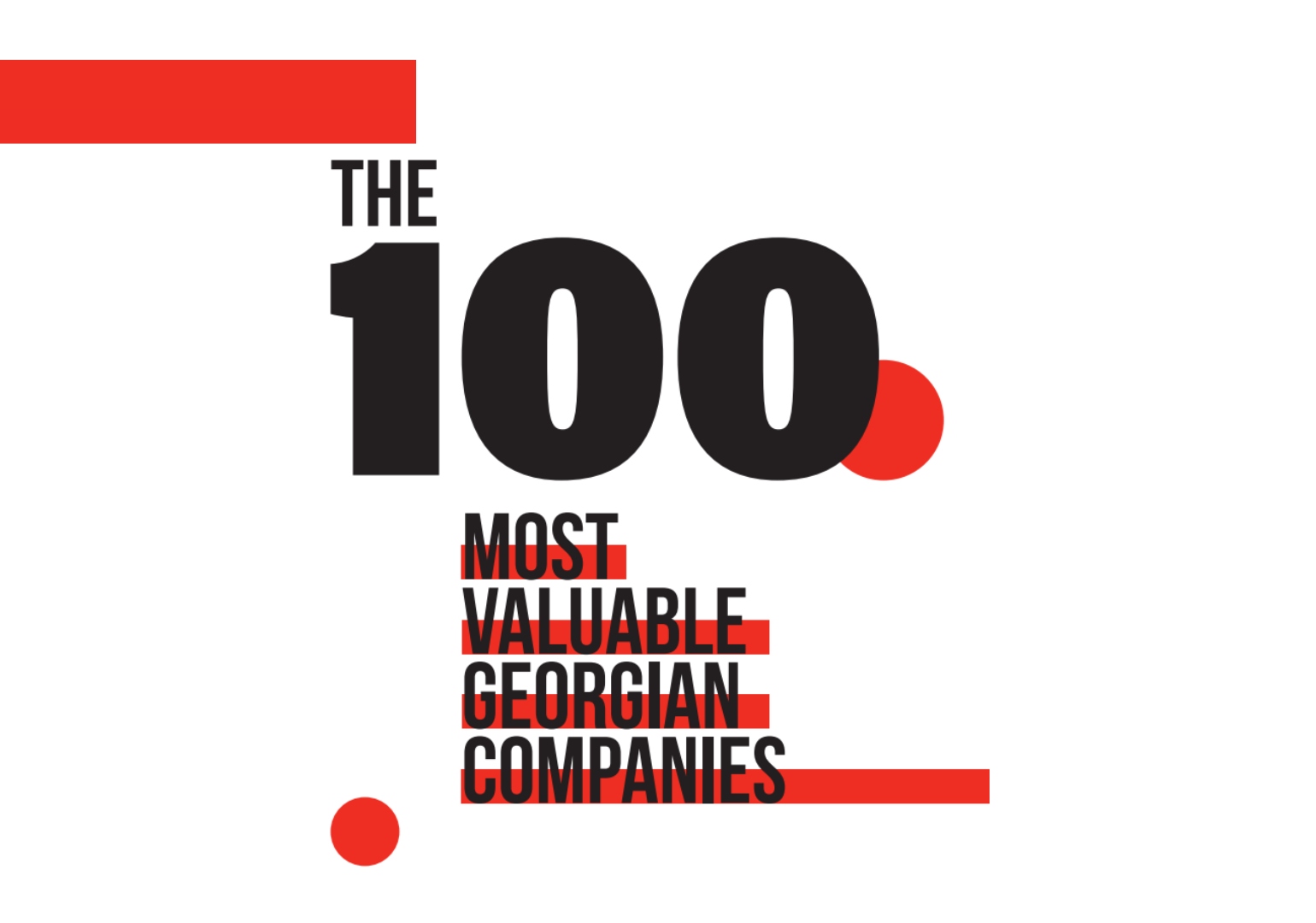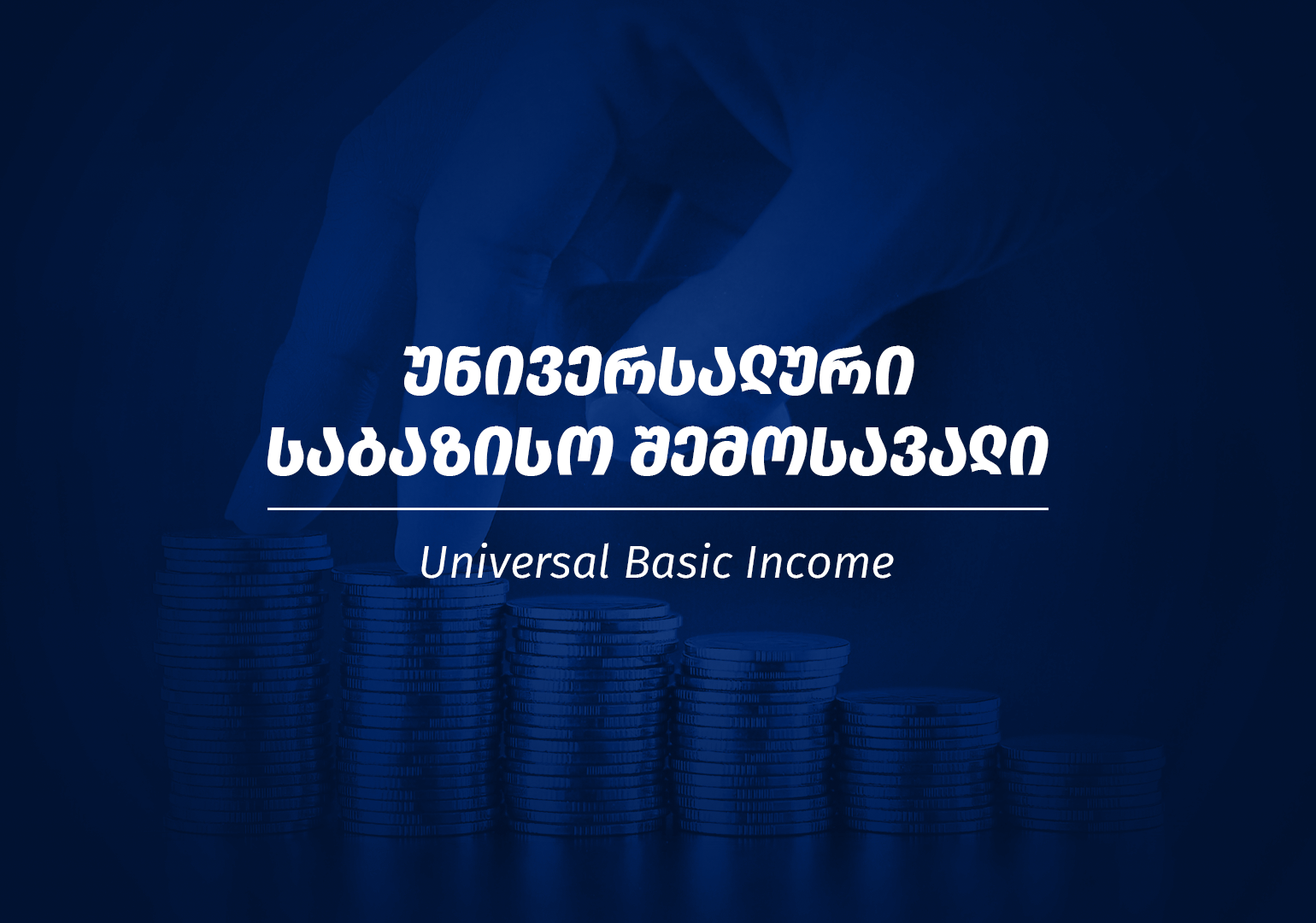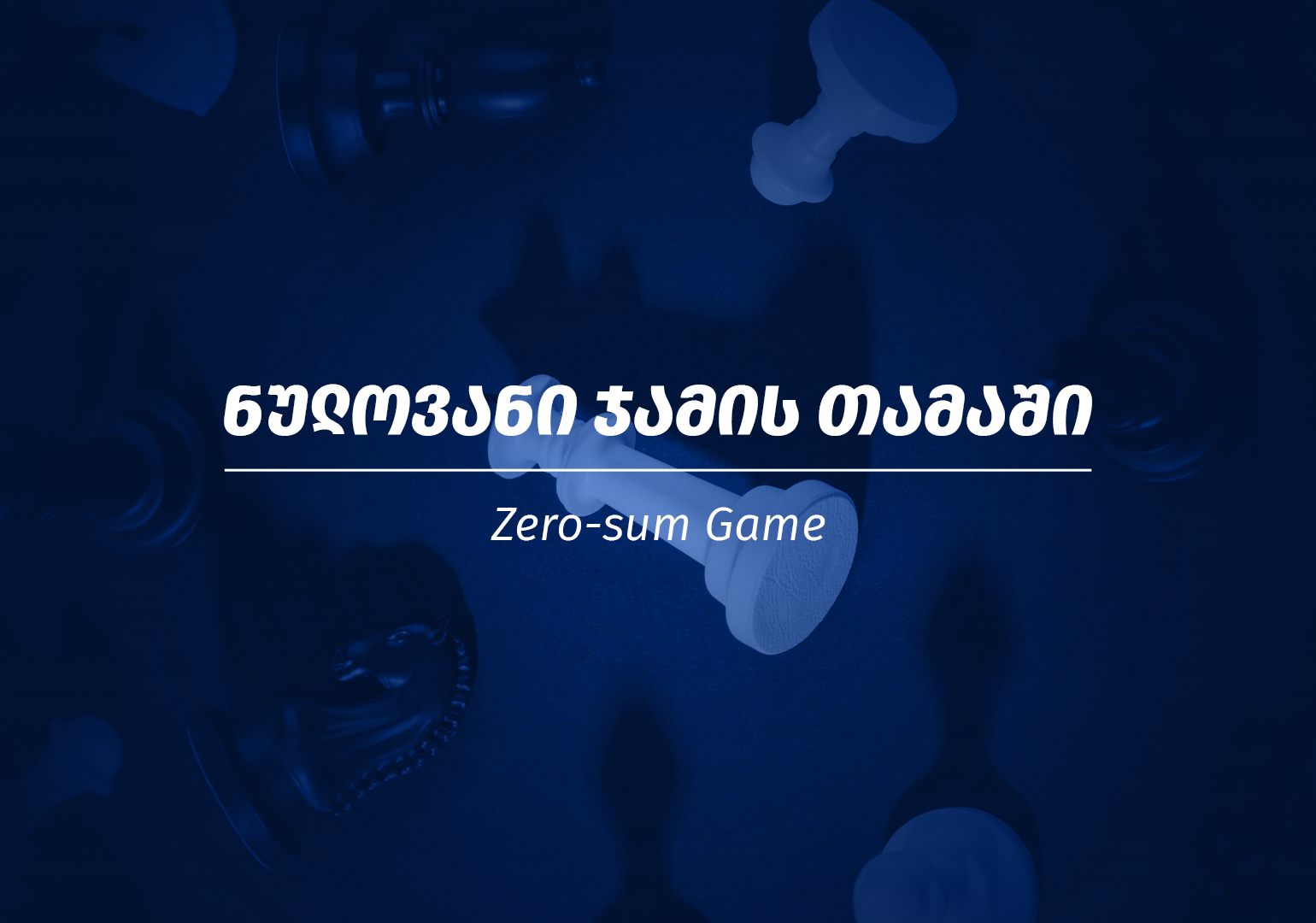IS IT REALLY POSSIBLE for a lottery company to be unprofitable? As it turns out, yes. Enter the Georgian Lottery Company– a state-owned, monopolist enterprise that has been losing money for years. The story of the Georgian Lottery Company began in 2009, when it won a special tender organized by the Ministry of Finance. As a result, it received the exclusive rights to organize and conduct national lotteries. At that point, the company was totally private, and belonged to the Lexor Capital Corporation, registered in the US Virgin Islands. According to an official statement issued by the Ministry of Finance, the Georgian Lottery Company won the tender on the condition that it makes payment of a sum equaling the total of all lottery tickets sold. More specifically, according to the company’s tender proposal, it planned to generate approximately 4,248,129,000 billion GEL in income, and pay 913,351,000 GEL to the state budget over the next 10 years. Simple arithmetic would suggest that the company’s daily income should have totaled 1,163,870 GEL in that case. To put that into perspective, each Georgian citizen above 15 years of age (according to the 2009 data) would need to spend about 2.24 GEL per week on average.
The company launched its operations based on these optimistic estimates back in 2009. But on August 9, 2011, Lexor Capital Corps unexpectedly transferred 70% of the company’s shares to the state – specifically the Ministry of Economy and Sustainable Development – and left 30% of the shares to itself. A few days later, the ministry transferred the company’s management rights to the Georgian Post. Since then, the Georgian Lottery Company and the Georgian Post have one and the same director.
In 2015, the government share in the company (70%) was included on the privatization list as part of an anti-crisis package, and on January 14, 2016, it appeared in the Ministry of Finance’s online auction. The auction was supposed to be conducted quietly, and it would have been, if not for one thing – the Lottery Company’s price was too low (1,000 GEL). According to the auction webpage, the company owed 216,318,937 GEL to the state budget – 62,634,927 GEL of it being comprised of fines and penalties it had accrued over time. No other information was made available on the website. The Ministry of Finance still refuses to disclose the contents of the contract signed between the state and the company, which raises suspicions concerning the fairness of the auction. The process was suspended as a result of protests voiced by NGOs. The government’s plans concerning the company are still unknown.
In general, Georgia is not the only country in the world where lotteries are organized by the state. This practice is widespread in Europe, where there is a long tradition of state lotteries, and where public trust is high. In some countries, there are additional types of gambling that are in the hands of the state (aside from the lottery), and they represent one source for financing social and educational projects. Finland is a clear example of that, where only the lottery company founded by the state has the right to organize gambling events. In Finland, the lottery company belongs to the Ministry of Education and Culture. In the United States, lotteries are organized on the state level. In almost all the states, the state government owns the lottery, and they generate quite a lot of income that way. In 2009, income generated through state lotteries exceeded the income received through income taxes in eleven states. As such, there are some who view the lotteries as a kind of tax. The money generated through lotteries is mainly spent on public education. However, the lottery and the sweepstakes market is not monopolized, and private companies also have the right to organize them (with certain limitations). Researchers maintain that sweepstakes and gambling events conducted by private companies mobilize much more revenue for the state budget than does income received as a result of state organized events.
Be that as it may, at the end of the day, Georgia’s hybrid model didn’t work:
• The state budget did not benefit – it received 217 million GEL less than expected
• The company itself did not benefit –in 2015, losses reached 55 million GEL by the Q3
• The customers did not benefit – total prize money is 51% of the total income, whereas in privately organized lotteries, this number is closer to 80%
• The private sector sustained losses –because a monopoly had been formed
The Georgian Lottery’s management style and its company practices require separate criticism, as they both caused additional financial losses. However, nobody has been held responsible for that so far, which is a general problem for state-owned companies.
Therefore, one could logically ask: what has the state got to do with the lottery business? That’s because the existence of a state-owned lottery is totally out of context, while the gambling industry is completely in private hands. It’s clear that keeping the status quo is tantamount to procrastination and burying one’s head in the sand. Could privatization be the solution? Probably only partially, because the risk of failure in private hands is still going to be quite high as the buyer will have to pay off the arrears and future liabilities. Unless of course, the government plans to write those arrears off. The auction showed that privatization will not yield substantial income for the budget – the highest online bid was a paltry 13,400 GEL.
The solution to this problem is both simple and banal – market de-monopolization and free competition. The Georgian Lottery Company failed to meet its obligations that it assumed back in 2009, which should become the basis for an annulment of its exclusive rights. Sound competition should be introduced in the market and any actor should be allowed to operate freely.
It’s strange that on the one hand the state is looking for monopolists in the private sector, and on the other hand, it’s creating another monopolist itself. The Law on Free Trade and Competition forbids all branches of government from making decisions that grant monopolistic rights to any economic agents apart from certain exceptions under Georgian legislation. The lottery is an exception.

